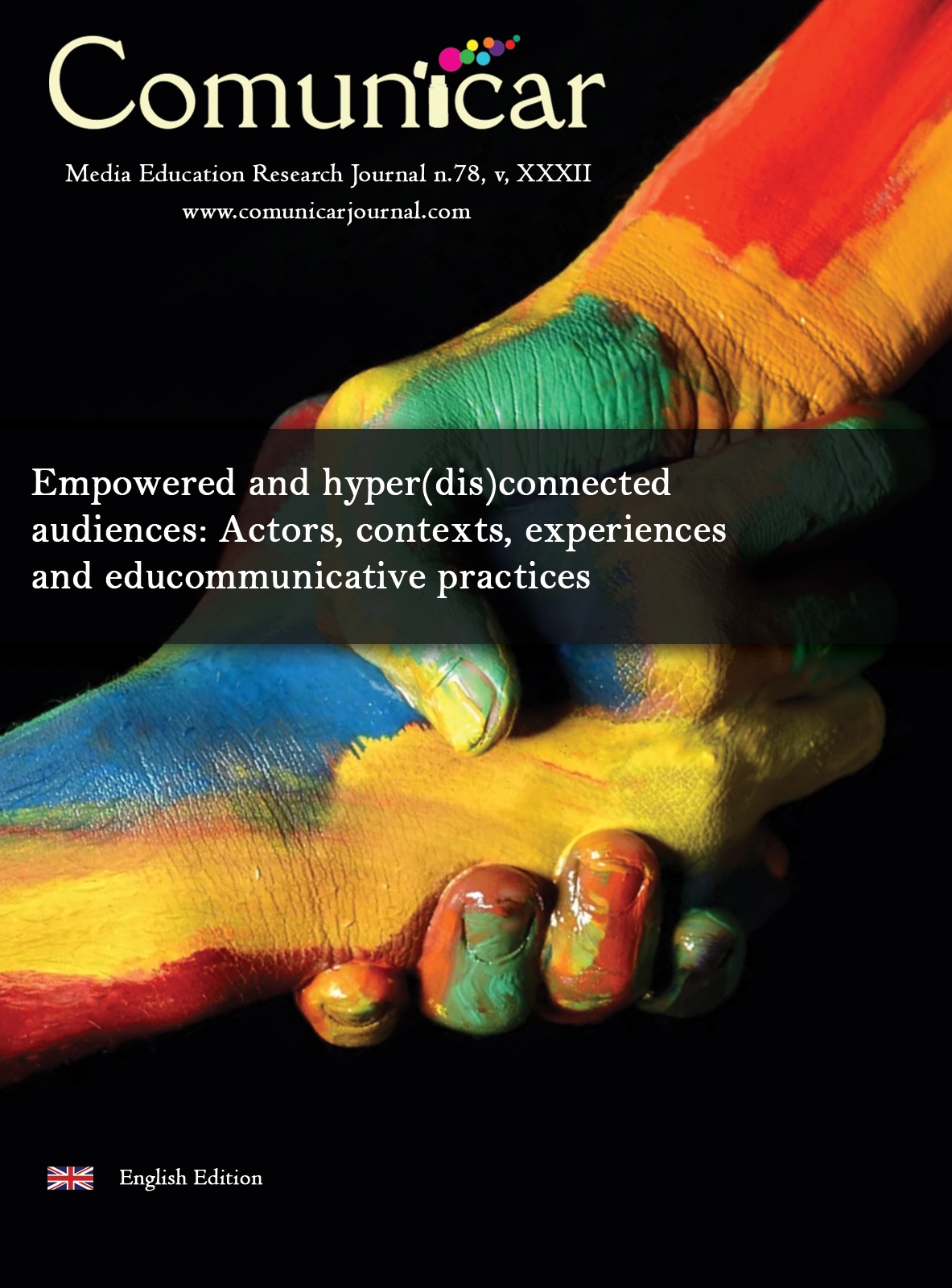The student self-assessment paradigm in MOOC: An example in Chinese higher education
IF 5.1
1区 文学
Q1 COMMUNICATION
引用次数: 0
Abstract
Although scholars have proposed many types of self-assessment methods. There are still many teachers in China who consider that student self-assessment is “difficult to implement”. This paper aims to optimize the assessment of MOOC learning, and to establish an integrated student self-assessment paradigm with “student-centered, teacher, and peer auxiliary”. We started by selecting nine key factors that influence the implementation of self-assessment in MOOCs. Then, we clarified the relationship between the nine factors by using the interpretative structure model (ISM) and the MICMAC analysis, and a six-level paradigm of integrated student self-assessment was established. Moreover, we put forward the following suggestions to optimize student self-assessment in MOOC learning. First, it’s necessary to consider student self-assessment in MOOCs as a formative assessment method. Second, universities should enhance student awareness of self-assessment through publicity. Third, institutions of higher education could set up assessment courses to enhance the quality of assessment of students. Fourth, schools should optimize the environment of student self-assessment with the help of technology. This study is of great significance for students to make self-assessment become the basis of online learning and thus perfect the research on MOOC learning. Los estudios han propuesto varios tipos de métodos de autoevaluación, sin embargo, muchos profesores, en el país, todavía consideran que la autoevaluación de estudiantes es «difícil de implementar». El objetivo de este artículo es optimizar la evaluación del método MOOC y establecer un paradigma integrado de autoevaluación para los estudiantes, en base de «centrado en estudiantes, asistido por profesores y compañeros». Se han seleccionado nueve factores clave que influyen en la implementación de autoevaluación del MOOC, y sobre esta base, a través del modelo de estructura interpretativa ISM y el método de análisis MICMAC, se han definido las relaciones entre estos factores y se ha establecido un paradigma integrado de seis niveles de la autoevaluación de estudiantes. Además, se han dado unas proposiciones para optimizar la autoevaluación del MOOC. En primer lugar, se necesitan utilizar la autoevaluación del MOOC como un método de evaluación formativa. En segundo lugar, las universidades deberían, mediante la publicidad, aumentar la conciencia de los estudiantes sobre la autoevaluación. En tercer lugar, las universidades pueden ofrecer programas de evaluación para mejorar la calidad de la evaluación de los estudiantes. En cuarto lugar, se utilizan los medios tecnológicos para optimizar el entorno de autoevaluación de estudiantes. Este estudio es significativo para hacer la autoevaluación como una base del aprendizaje online, y así, promover los efectos del MOOC.MOOC中的学生自我评估范式——以中国高等教育为例
尽管学者们提出了许多类型的自我评估方法。中国仍有许多教师认为学生自我评估“难以实施”。本文旨在优化对MoOC学习的评估,并建立一种“以学生为中心,教师和同伴辅助”的综合学生自我评估范式。我们首先选择了9个影响MoOCS自我评估实施的关键因素。然后,利用解释结构模型(ISM)和MICMAC分析澄清了九个因素之间的关系,并建立了一个六级综合学生自我评估范式。此外,我们还提出了以下建议,以优化MoOC学习中的学生自我评估。首先,有必要将MoOCS中的学生自我评估视为一种形成性评估方法。第二,大学应通过宣传提高学生的自我评估意识。第三,高等教育机构可以开设评估课程,提高学生评估质量。第四,学校应在技术的帮助下优化学生自我评估的环境。这项研究对于学生进行自我评估成为在线学习的基础,从而完善MoOC学习的研究具有重要意义。研究提出了几种自我评估方法,但该国许多教师仍然认为学生的自我评估“难以实施”。本文的目的是优化MoOC方法的评估,并在“以学生为中心,教师和同学协助”的基础上,为学生建立一个综合的自我评估范式。选择了影响MOOC自我评估实施的9个关键因素,在此基础上,通过ISM解释结构模型和MICMAC分析方法,确定了这些因素之间的关系,并建立了一个六级学生自我评估的综合范式。此外,还提出了优化MOOC自我评估的建议。首先,需要将MOOC的自我评估作为一种形成性评估方法。第二,大学应通过宣传提高学生的自我评估意识。第三,大学可以提供评估计划,以提高学生评估的质量。第四,利用技术手段优化学生自我评价环境。这项研究对于将自我评估作为在线学习的基础,从而促进MoOC的效果具有重要意义。
本文章由计算机程序翻译,如有差异,请以英文原文为准。
求助全文
约1分钟内获得全文
求助全文
来源期刊

Comunicar
Multiple-
CiteScore
10.10
自引率
5.40%
发文量
40
审稿时长
20 weeks
期刊介绍:
Comunicar specialized in educommunication: communication and education, ICT, audiences, new languages...; monographs specialized in current issues. Double format: printed and online; digitally, accessible in full text, free of charge, for the entire scientific community and researchers around the world. Coeditions printed in Spanish and English for the whole world. Published by Oxbridge Publishing House which collaborates with many international centres and universities.
 求助内容:
求助内容: 应助结果提醒方式:
应助结果提醒方式:


